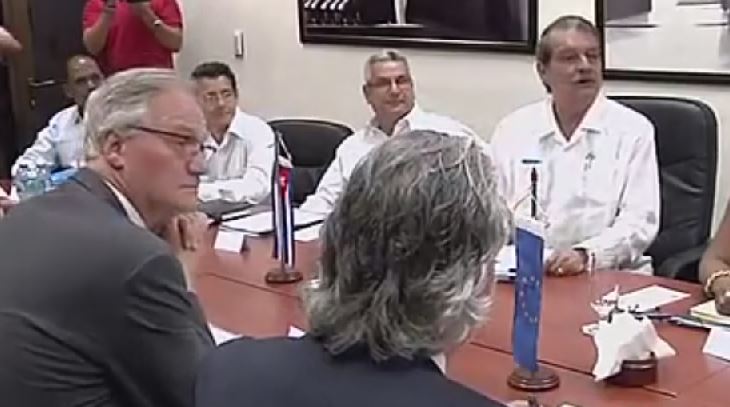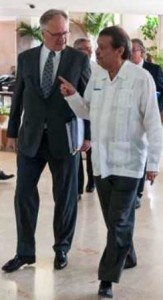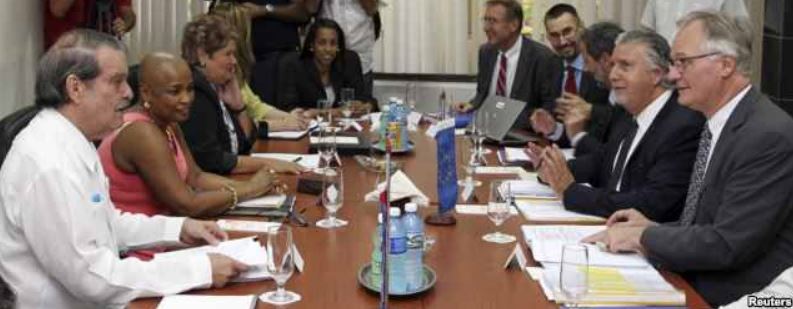
EU is not competing with U.S. for trade with Cuba, official says
The European Union is not competing with the United States for a prime spot in commercial trade with Cuba, said the EU’s chief negotiator after the two-day round of talks that ended Thursday in Havana.

“It is not a question of competition between the United States and the European Union,” said Christian Leffler, director for the Americas of the European Service for Foreign Action. “A more active presence […] by the United States could contribute to reinforce a positive atmosphere that would also move in our direction.”
The presence of European and American diplomats and politicians in Cuba, talking about renewed diplomatic and trade relations, “could dissipate a cloud that weighed over the region,” Leffler told reporters. In recent weeks, Havana has seen a parade of European and American officials gauging the opportunities for wholesale trade with Cuba.
“This opens new possibilities,” he said, adding that he is witnessing “a gradual détente” in relations between the European community and Cuba. Cuba-EU relations were officially severed in 2003, and both sides have been trying to resume them for the past 11 months.
Leffler indicated that the EU was not worried over the possibility of a U.S. takeover of trade with Cuba once relations between the former adversaries are normalized.
“The European presence — whether it is economic, political or as cooperation — is sufficiently solid to sustain and develop itself in parallel” to the American presence, he said, reminding his listeners that the EU is one of Cuba’s leading trade partners.
According to the EU’s headquarters in Brussels, the EU is Cuba’s second most important trading partner, accounting for 21.9 percent of total Cuban trade in 2013. The EU is the second biggest source of Cuban imports (20.7 percent) and was the third most important destination for Cuban exports (21 percent). The EU is Cuba’s biggest foreign investor. Approximately one third of all tourists visiting the island every year come from the EU.

The presence and influence of EU and American commerce are “complementary,” Leffler said, and can only lead to an improvement of the island’s economic situation.
The Cuban daily Granma on Friday (March 6) quoted Leffler as saying that this week’s talks reflected “the constructive spirit and the commitment of both parties.”
Discussed during the political dialogue were subjects such as national sovereignty, human rights, peace, security and the fight against terrorism, Leffler said, according to Granma.
The two delegations will meet again in Brussels later this spring. No date has been set.
[Photo on top: In foreground, from left, Christian Leffler, chief EU negotiator, and Hernan Portocarero, EU ambassador in Cuba. At rear right, Cuban deputy foreign minister Abelardo Moreno.]


